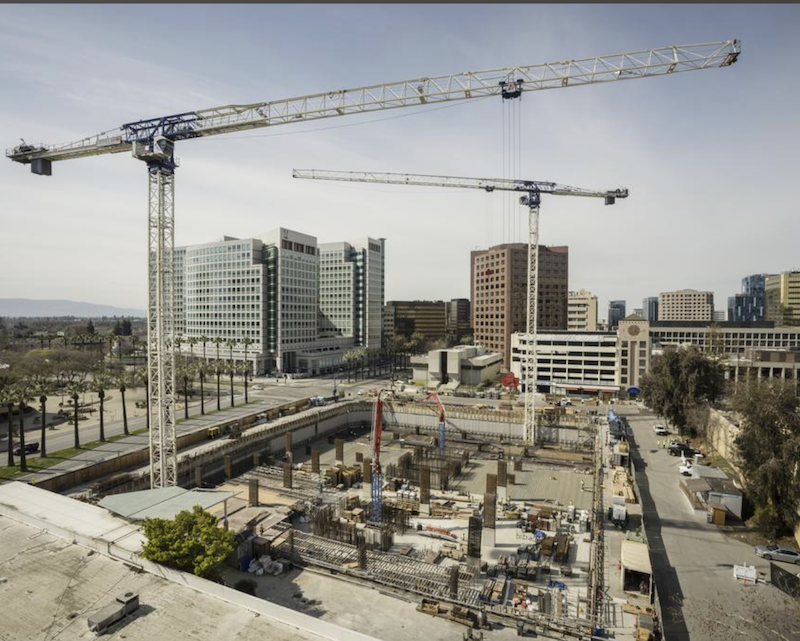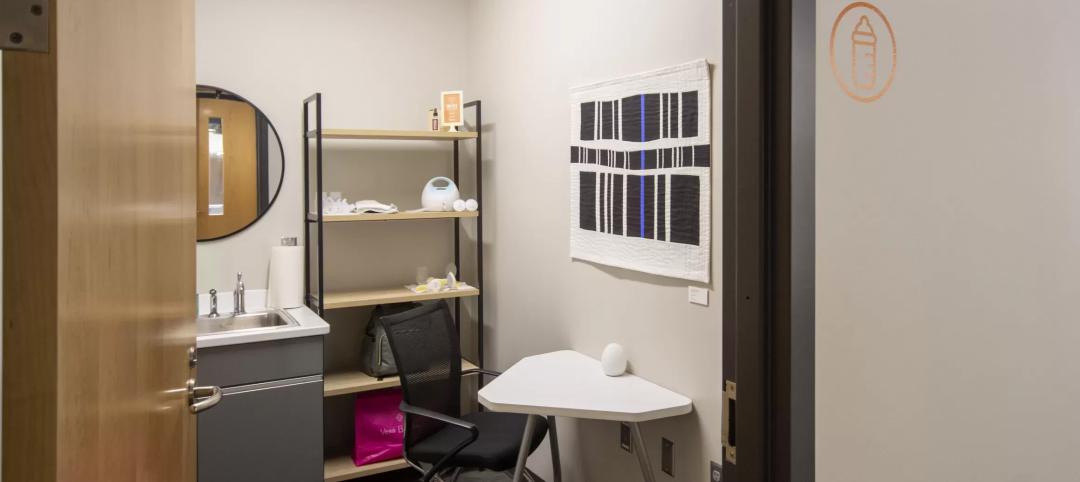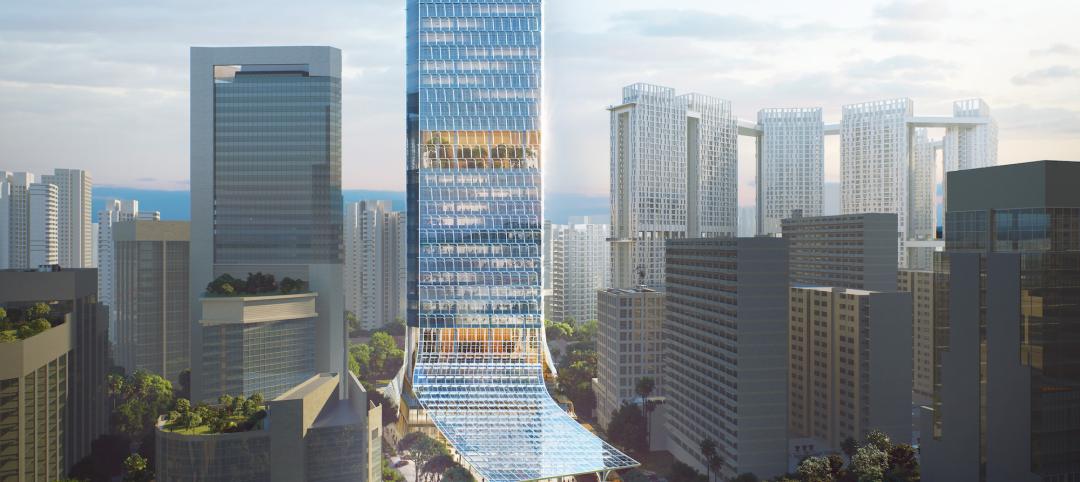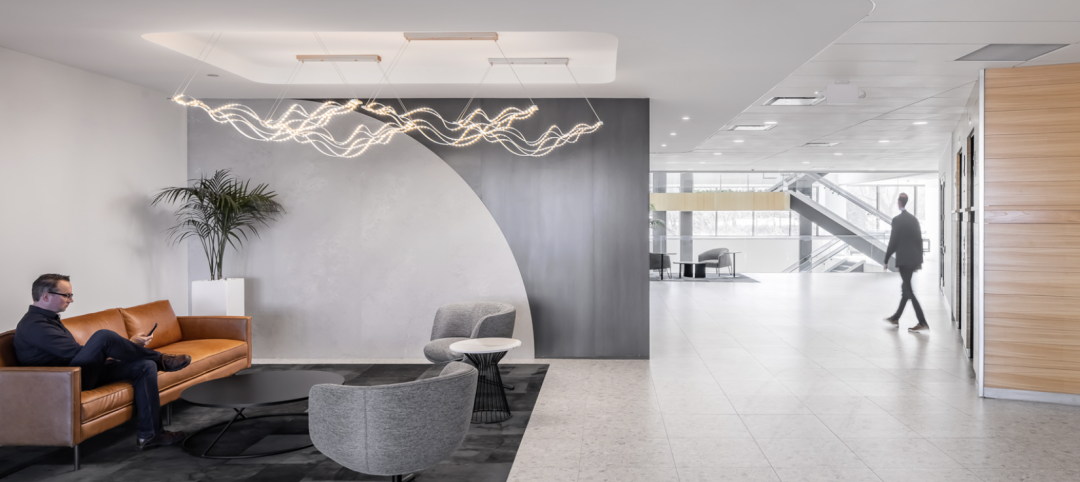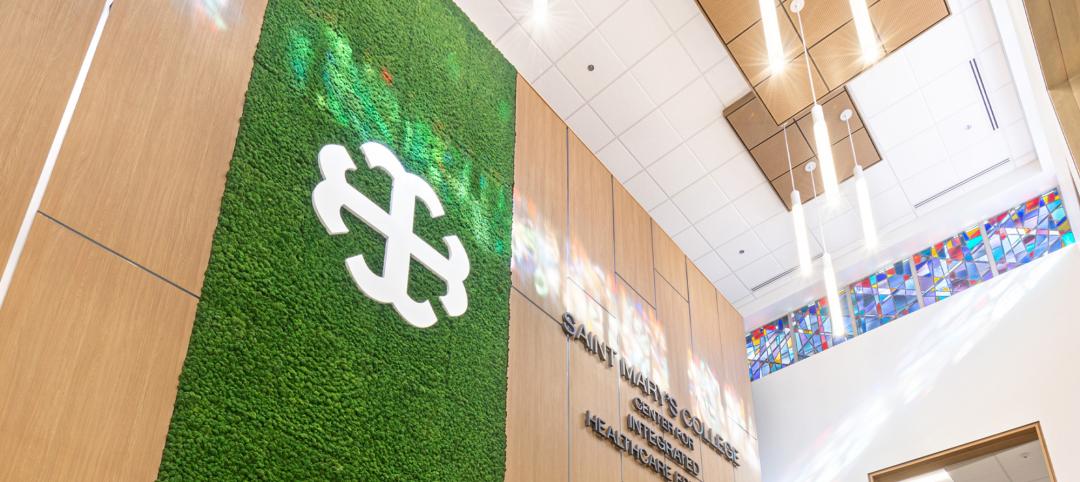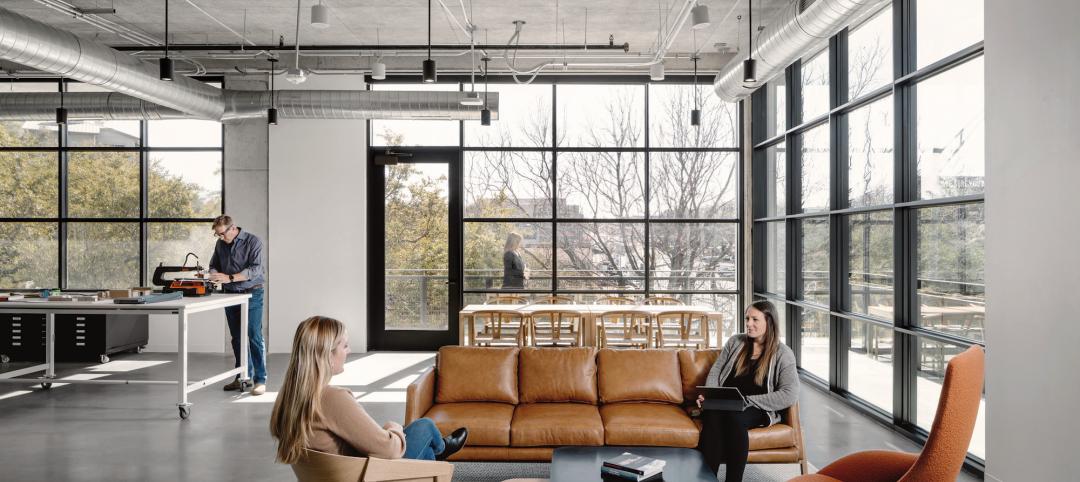A 19-story building under construction in San Jose, Calif., will be the second in the country to be built with a concrete-filled composite plate shear wall system, which was first used successfully two years ago for construction of the 58-story Rainer Square tower in Seattle.
Level 10 Construction is the general contractor on the San Jose project, known locally as 200 Park, a Class A office building that, when it’s completed in May 2023, will have 937,000 sf that include 26,000 sf of outdoor terraces. The building’s owner, Jay Paul Company, is targeting LEED Gold certification. When it’s completed, 200 Park will be San Jose’s tallest office tower.
200 Park Conceptual Structural Steel Sequence from Level 10 Construction on Vimeo.
The wall system, known as Speed Core, is expected to reduce the construction time for 200 Park by three months, according to Kevin Englund, Level 10’s Partner and Vice President. Level 10 started construction on this project in March, and the Speed Core portion should be completed next year.
The building team on this project includes Gensler (architect), and Magnusson Klemencic Associates (SE and CE), which has been Speed Core’s biggest advocate. MKA was part of the project team that completed Rainer Square tower’s core nine months ahead of schedule.
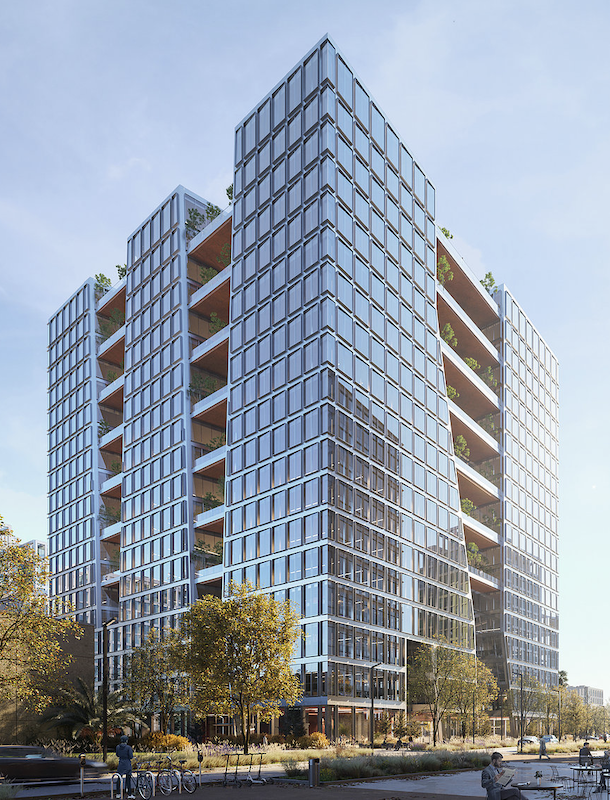
200 Park in San Jose, Calif., will have 937,000 of rentable square footage, and 26,000 sf of outdoor terraces (below). Images: Jay Paul Company
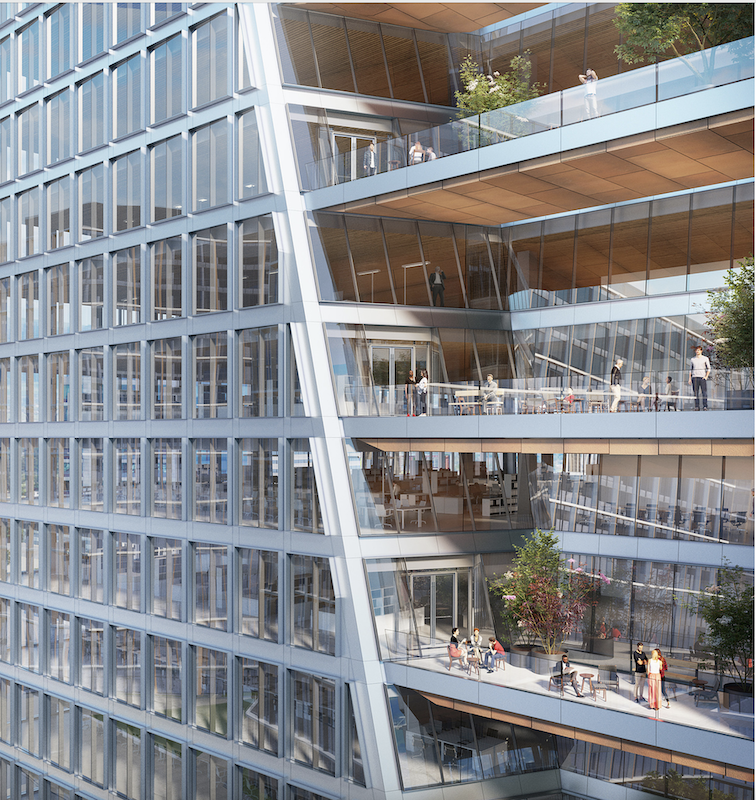
FASTER AND SAFER CONSTRUCTION
The SpeedCore system relies on two steel plates connected with steel cross ties, which are then filled with high-strength concrete. (For the San Jose project, the steel section is filled with 10,000-psi grout for the structural core.) The modular nature of these prefabricated “sandwich” panels allows for faster erection speed, since the system provides stability without requiring traditional rebar reinforcing or the temporary formwork of a typical concrete core, and progress is not dependent on concrete curing times.
Also see: 3D conceptual video of the structural steel sequence
Also see: The American Institute of Steel Construction’s profile of Speed Core
Off-site, Schuff Steel fabricated the panels for 200 Park, which weigh up to 12.5 tons, and then shipped the panels to the construction site.
As described in a 3D conceptual video of Speed Core’s steel structure sequence that Level 10 posted, stanchions are embedded in concrete shear walls and the floor slab is cast. Below-grade wall panels are erected and welded into place. Grade-level seismic struts are installed. Grade-level slab is cast and the erection proceeds. Speed Core wall panels carry up to eight floors of steel prior to concrete.
200 Park Avenue Mock-Up Installation from Level 10 Construction on Vimeo.
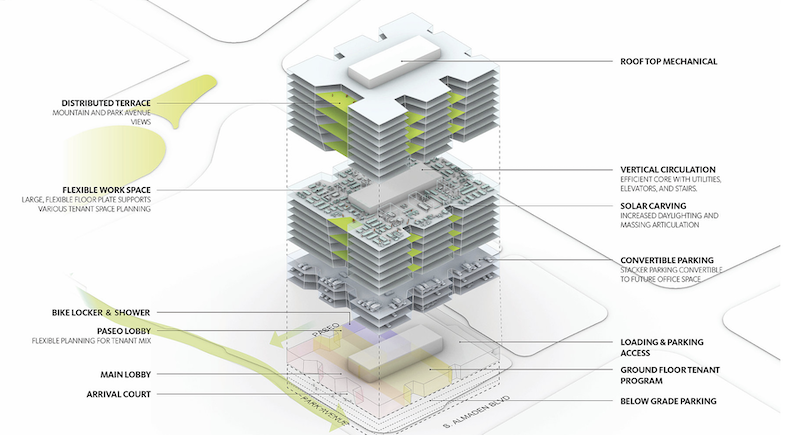
The average floorplate at 200 Park will be 54,000 sf. Image: Jay Paul Company
Related Stories
Government Buildings | Aug 7, 2023
Nearly $1 billion earmarked for energy efficiency upgrades to federal buildings
The U.S. General Services Administration (GSA) recently announced plans to use $975 million in Inflation Reduction Act funding for energy efficiency and clean energy upgrades to federal buildings across the country. The investment will impact about 40 million sf, or about 20% of GSA’s federal buildings portfolio.
Market Data | Aug 1, 2023
Nonresidential construction spending increases slightly in June
National nonresidential construction spending increased 0.1% in June, according to an Associated Builders and Contractors analysis of data published today by the U.S. Census Bureau. Spending is up 18% over the past 12 months. On a seasonally adjusted annualized basis, nonresidential spending totaled $1.07 trillion in June.
Office Buildings | Aug 1, 2023
Creating a nurturing environment: The value of a mother’s room in the workplace
Since becoming an architect, Rebecca Martin of Design Collaborative has drawn a mother’s room into numerous projects. But it wasn't until she became a mom that she fully appreciated their importance in the workspace.
Adaptive Reuse | Jul 27, 2023
Number of U.S. adaptive reuse projects jumps to 122,000 from 77,000
The number of adaptive reuse projects in the pipeline grew to a record 122,000 in 2023 from 77,000 registered last year, according to RentCafe’s annual Adaptive Reuse Report. Of the 122,000 apartments currently undergoing conversion, 45,000 are the result of office repurposing, representing 37% of the total, followed by hotels (23% of future projects).
High-rise Construction | Jul 26, 2023
A 33-story Singapore tower aims to reimagine work with restorative, outdoor spaces
Architecture firm NBBJ has unveiled design details for Keppel South Central, a commercial tower in Singapore. The project, which is slated for completion in late 2024, will transform the original Keppel Towers into a 33-story, energy-efficient building that aims to reimagine work by providing restorative spaces and connections to the outdoors.
Multifamily Housing | Jul 25, 2023
San Francisco seeks proposals for adaptive reuse of underutilized downtown office buildings
The City of San Francisco released a Request For Interest to identify office building conversions that city officials could help expedite with zoning changes, regulatory measures, and financial incentives.
Market Data | Jul 24, 2023
Leading economists call for 2% increase in building construction spending in 2024
Following a 19.7% surge in spending for commercial, institutional, and industrial buildings in 2023, leading construction industry economists expect spending growth to come back to earth in 2024, according to the July 2023 AIA Consensus Construction Forecast Panel.
Office Buildings | Jul 24, 2023
A twist on office conversions maximizes leasable space
A recent NELSON Worldwide project is made more suitable for multiple workplace tenants.
Biophilic Design | Jul 20, 2023
Transform your work environment with biophilic design
Lauren Elliott, Director of Interior Design, Design Collaborative, shares various ways biophilic design elements can be incorporated into the office space.
Office Buildings | Jul 20, 2023
The co-worker as the new office amenity
Incentivizing, rather than mandating the return to the office, is the key to bringing back happy employees that want to work from the office. Spaces that are designed and curated for human-centric experiences will attract employees back into the workplace, and in turn, make office buildings thrive once again. Perkins&Will’s Wyatt Frantom offers a macro to micro view of the office market and the impact of employees on the future of work.


